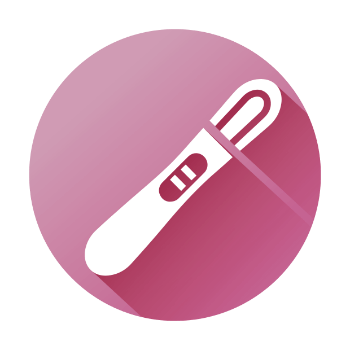
What is Synthroid? Well, it’s a prescription drug with the active ingredient levothyroxine sodium which is a synthetic version of Thyroxine (T4) – a hormone produced and released by the thyroid gland. Basically, it treats individuals with an underactive thyroid or a condition more commonly known as hypothyroidism and helps in restoring thyroid hormone balance in your body.
Usually, Synthroid is a medication to be taken for life. So, how much will Synthroid cost you?
Average Cost of Synthroid
Synthroid is a trusted thyroid hormone brand with doctors prescribing it for over 50 years. And if you have been diagnosed with hypothyroidism, it was probably the first brand you heard about.
Now, taking Synthroid every day as your doctor instructed is essential to maintain your body’s physical and mental state as it provides and replaces the thyroid hormone needed to support your metabolism, growth, and development.
As of writing, the average price of Synthroid without insurance is from $40 to $60 for 30 tablets. This price range could vary depending on a few factors to be discussed later on.

Shopping for Synthroid
As a popular brand of levothyroxine, Synthroid could be easily found in most major pharmacies across the United States.
And to give you an idea, here are six of the biggest stores you can purchase it from:
- Kroger: The Kroger Company has nearly 2,000 pharmacies in 31 states. And their average charge for 30 tablets of Synthroid is $40.
- Costco: At Costco, you can purchase Synthroid at $41 to $42 for 30 tablets. You can even have it delivered to your home without added shipping fee if you’re willing to wait 6 to 14 days, or pay $10.95 to receive your medicine within 3 to 6 days, or $13.95 for 2 to 5 days.
- CVS Pharmacy: Synthroid is available at any CVS Pharmacy for $44 to $45 for 30 tablets. But, if you are enrolled in Medicare Part D and Medicare Advantage plans, you are looking at a $7 to $40 price range or maybe even at no cost at all, depending on your coverage stage. If you don’t have a plan yet, you can easily find the perfect Medicare Part D plan with CVS Pharmacy.
- Rite Aid: The average Synthroid cost for 30 tablets at Rite Aid is $54 to $60. They’re one of the easiest pharmacies to go to, having 4,600 stores in 31 states and the District of Columbia.
- Walgreens: The price of Synthroid without insurance at Walgreens is from $56 to $59 for 30 tablets.
For cheaper prices, you can also try shopping online with Blink Health. It is a website where you simply have to search your prescription medicine, pay it over the internet, and pick it up at the pharmacy of your choice. With Blink Health, you can save up to 95% plus it is free to use and has no membership fees. And you can get Synthroid at the average price of $17 to $24 for 30 tablets.
Another alternative to get Synthroid at a lower cost is through the use of coupons. GoodRx gives out free coupons which you can use at several pharmacies. To give you an idea how GoodRx coupons could lower the price, here’s a rough estimate of Synthroid prices for 30 tablets:
Kroger: From the original price of $40, the price of Synthroid without insurance can go down to $39.
Costco: From $41 to $42, with coupons, it will be around $39.
CVS Pharmacy: From $44 to $45, Synthroid with coupons will be $40.
Rite Aid: From $54 to $60, it will go down to around $44.
Walgreens: With the original price of $56 to $59, Synthroid will only be $42.
Other websites that offer coupons are LowestMed.com and WebMD.com. You can compare prices and select which best fits your budget and location.
The company behind Synthroid offers saving options as well. If you don’t have insurance, you’d be able to get $3 off from a 30-day prescription or $10 off a 90-day prescription. And if you do have insurance, you’d only be paying $25 for 30 tablets or $75 for 90 tablets. All you have to do is join their Before Breakfast Club program.
In addition, Walmart offers a cheap alternative for individuals with thyroid conditions through their Prescription Program where you can purchase a generic equivalent of Synthroid for only $4 per 30 tablets.
Factors Affecting Cost of Synthroid
As you can see, prices vary from one pharmacy to another. And according to the prices indicated, the most expensive store you can get Synthroid is at Rite Aid and Walgreens. But with the right coupons, you won’t have to spend as much.
One of the most important things to consider when taking Synthroid is its dosage. There are 12 doses of Synthroid, and the needed dose would be depending from one person to another. Each dose has a particular corresponding price but not exceeding $60 for 30 tablets. It is very important that you follow the dose prescribed by your doctor to avoid potential problems later on.
Also, take note that the price of Synthroid without insurance is cheaper when you get a 90-day prescription instead of a 30-day. For example at Costco, a 30-day prescription amounts to $41 to $42. In 90 days’ time, that would amount to $123 to $126. But, if you purchase the 90-day prescription, you’d only have to pay around $115.
Additional Information
Some people take Synthroid to lose weight or treat obesity which should NEVER be the case. If misused, dangerous side effects or even death can occur. Also, Synthroid is not to be taken if you have certain illnesses. So, it is important that you disclose other medical conditions you have with your doctors such as untreated or uncontrolled adrenal gland disorder, thyrotoxicosis, and heart attack.
It is also worth knowing which medicines you should avoid taking as they would make Synthroid less effective. And these are calcium carbonate, ferrous sulfate iron supplement, sucralfate, cholestyramine, colestipol, sodium polystyrene sulfonate, and antacids which contain aluminum or magnesium. If you do need these drugs, just be sure to take them within 4 hours before or 4 hours after you take Synthroid.
Lastly, avoid high-fiber foods and walnuts as much as possible as these will make your body absorb less levothyroxine – which is the primary ingredient of Synthroid.